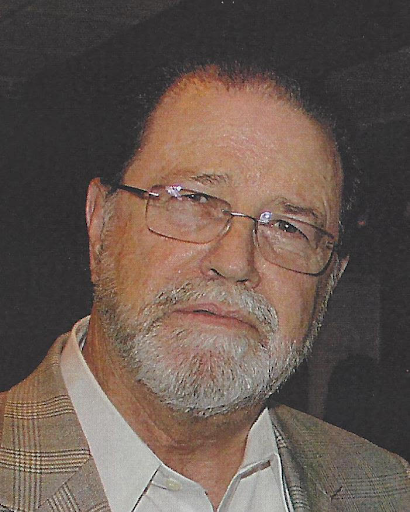
The Republican Party and American conservatism stand at a crossroads on many issues; one of the most visible being foreign policy. There is a bitter divide on what our role in the world would be. In the broad sense, the GOP can be divided into two camps — on one side of this debate are the traditional conservatives in the mold of Presidents Reagan and Bush, who support active American leadership in the world, robust defense spending, alliances and the promotion of democracy (note to the reader: I’m one of the former). On the other side are the party’s Trump wing: populist and isolationist.
Nowhere is this struggle seen more clearly than with American support for Ukraine. Vladimir Putin began his war of genocidal conquest last February (though the tyrant’s war’s been ongoing since 2014), and Ukraine’s valiant struggle for national survival is the most pressing event in the world today. While the Biden administration should be doing far more in terms of supplying military aid, the fact remains that Western support for Ukraine has been faithful and reliable.
Whether this good news will last remains to be seen. American public opinion has shifted in that time, and not for the better. A CNN poll in August documented that by a margin of 55% to 45%, Americans oppose further aid. Congressional Republicans are divided: most in the Senate are in favor of aid, with Senate Minority Mitch McConnell working diligently to ensure that support for Kyiv remains consistent and bipartisan, as it should. By contrast, the naked ambition and opportunism of House Speaker Kevin McCarthy manifests itself in shameful rhetorical opposition and indulgence of the House Freedom Caucus to protect his own political fortunes.
Put bluntly, this is very worrying.
This divide isn’t a recent phenomenon by any means. In many ways, this intraparty split mirrors the GOP’s great debate in the late 1940s and early 1950s — the formative years of the Cold War. As America took on its new responsibilities and sought a framework for winning the Cold War, it was obvious that this effort would have to be a bipartisan one. Perhaps inevitably, it was fitting that one of the key architects of our postwar foreign policy once held a very different position.
Like many of his countrymen, Michigan Senator Arthur Vandenberg was an isolationist before World War II. And, as was the case with many of his countrymen, the war changed his mind.
In January 1945, Vandenberg formally announced his conversion to internationalism in the renowned “speech heard ‘round the world.” It was one of the most consequential transformations in the history of American politics, and Vandenberg would become one of America’s greatest statesmen in the process. From there, he would work intimately with the Truman administration on many wise and critical measures: military and economic aid to Greece and Turkey in 1947, shepherding the Marshall Plan through Congress in 1948 and was instrumental to founding of NATO in 1949. All these policies gathered overwhelming bipartisan support.
In opposition was Ohio Senator Robert Taft, the eldest son of President William Howard Taft, the spokesman for the predominantly Midwestern isolationists who viewed the nation’s new role as diminishing liberty at home and being provocative and wasteful abroad. In particular, Taft’s opposition to NATO reminds us that the isolationist rhetoric of the past and present is eerily similar, if not identical.
This divide would culminate in 1952, with the party’s moderates recruiting General Dwight D. Eisenhower to seek the nomination to oppose Taft. In a bitterly contested convention, Ike was nominated, and went on to win a sweeping victory in November. The party’s debate over foreign policy was sealed, and the right side had won.
The early Cold War debates matter today because just as then, the world is fraught with great danger. In 1949 China fell to communism, Russia acquired the atomic bomb, and 1950 witnessed the outbreak of the Korean War. In 2023, Russia and Communist China are ever expansionist, and while many Americans recognize the perils we face, not enough do.
Supporting our allies in Ukraine is not only the right and moral course: it is strategically sound in every way. It would halt and perhaps destroy Putin’s longstanding aim to restore the Soviet Union, and discourage a Chinese invasion of Taiwan. It is in the tradition of the Truman and Reagan doctrines, and at the cost of a mere 0.43% of our GDP, we are supplying Ukraine with the means to fight without putting any American in harm’s way.
Isolationists fail to recognize a simple truth: since 1945, our nation’s borders have ceased to be on the Atlantic and Pacific Oceans. In 1950, they were in West Germany and the 38th Parallel in Korea. In 2023 those markers are in Ukraine and Taiwan.
In the simplest of terms, American global leadership is a matter of moral obligation and national destiny, because our nation’s democratic ideals and national interests are one and the same. When tyrants perpetuate evil upon their captive peoples, America cannot stand idly by and accept it. Now more than ever, we should remember the words of President George W. Bush’s second inaugural address: “The survival of liberty in our land increasingly depends on the success of liberty in other lands. The best hope for peace in our world is the expansion of freedom in all the world.”








Fernando • Sep 26, 2023 at 8:19 pm
Great article!